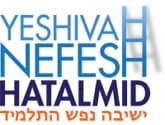Its hard for parents and mechanchim not to learn the parsha of Ben Sorer U’Moreh and give pause. Even with the Gemara’s statement that this case “never happened and never will”, it is still frightening and difficult to understand completely, though there are many chinuch lessons we can learn from it. Many meforshim have different approaches and relevant ideas to raising children, and perhaps we should spend Shabbos reviewing some (especially Rav Hirsch).
I would only add how Rashi connects this mitzvah with the idea of Eishes Yefas Toar. Rashi explains Bein Sorer U’Moreh as the Torah’s way of “seeing the road this child is on” and cutting it short before he gets worse (better to die innocent and a tzadik than guilty and a rasha). By contrast, he explains Eishes Yefas Toar as the torah looking at the person’s reality right now, “speaking to the persons yetzer hara” and accepting the level this person is on, allowing them to take this woman. The 2 seem to be in contradiction, one accepting a person and his faults and allowing him to fulfill some of his desires at least within the boundaries of the torah, the other punishing the child not for what his current reality is but for what we fear he may become. Though contradictory, Rashi concludes that Eishes Yefas Tora leads to a Ben Sorer U’Moreh!
Perhaps we see here the conflict we all face with children, how to balance being understanding and accepting versus having expectations and pushing them, sometimes being disappointed in them (and possibly perceived as unaccepting) because we know they can do more. This delicate and contradictory balance must always be maintained, like a tightrope walker, and must often be utilized simultaneously. Confused? Maybe that’s why kids don’t always get their parents and teachers…
Certainly we can learn from here that the ends don’t always justify the means, that being too understanding and open minded can be dangerous and lead to pain and suffering. On the other hand, we all, kids included, need space to breath, to stretch, to be ourselves and figure out who we are. Perhaps its this balance, the chessed and the din, which combined together properly is called “Tiferes”, “Emmes”, and Torah is our avodah. We may not always be successful, which is ok, but by knowing what to shoot for, doing our best to reach it, and davening, Hashem should do the rest and mashlim what we can’t do.
I”H we should be zocheh to mechaneich our kids with the proper balance, and may Hashem be pleased with our avodah and give us Siateh Dishmaya in raising his children.
Shabbat Shalom, Good Shabbos,
Rabbi Ari Deutscher MSW
Menahel

Leave A Comment